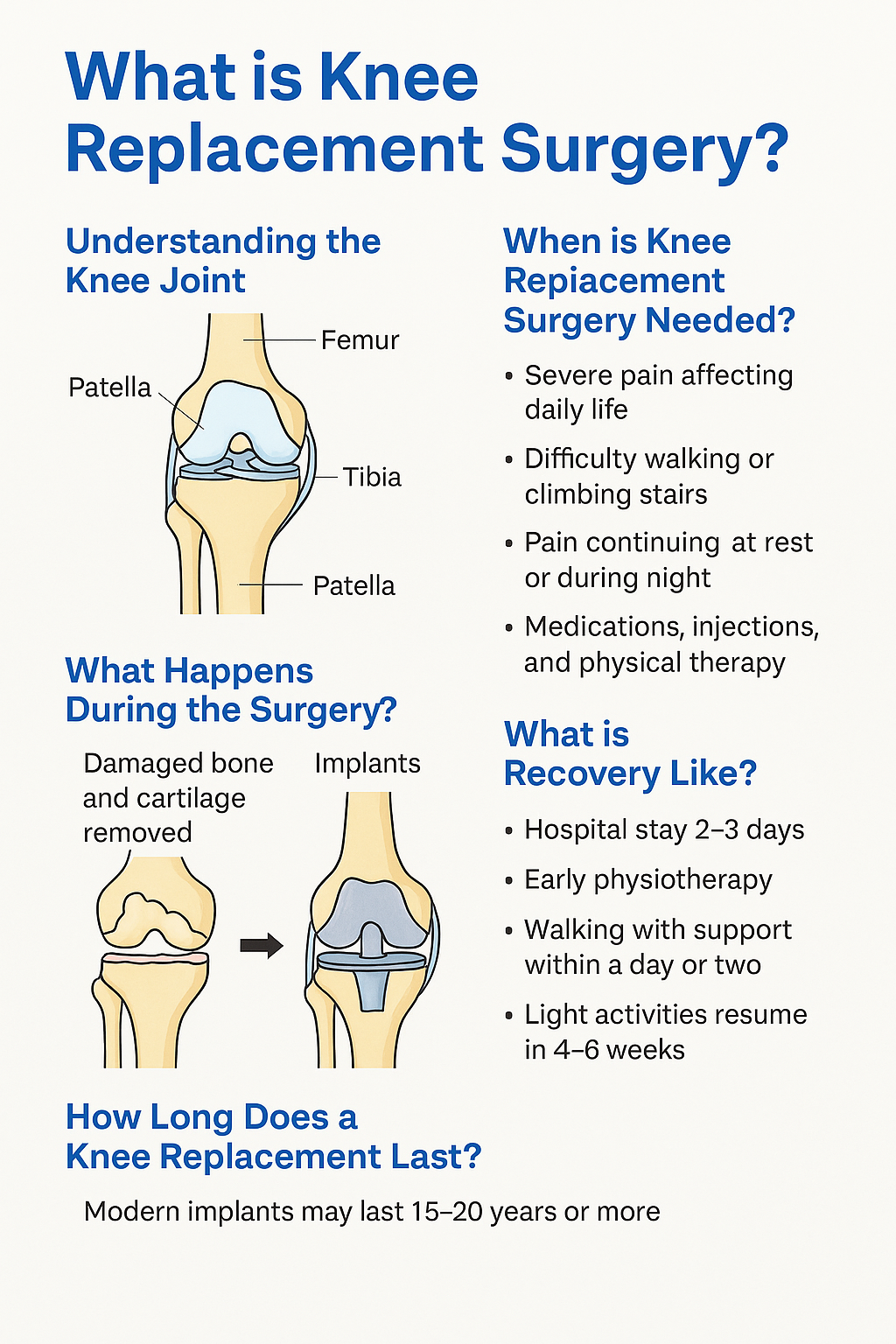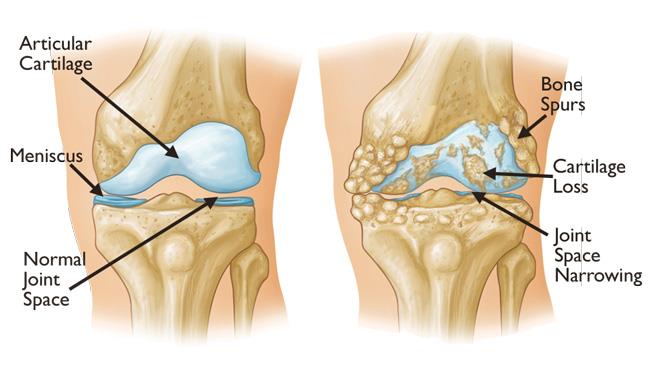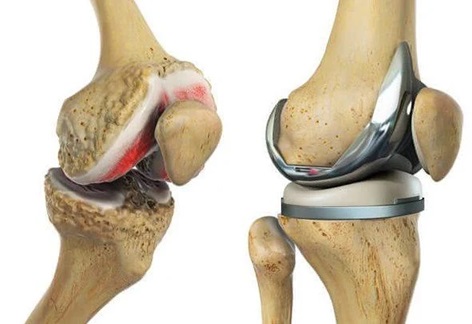What is Knee Replacement Surgery?
Dr. Satvik N Pai
What is Knee Replacement Surgery?
Knee pain can be life-altering. It can make simple things—like walking, climbing stairs, or even standing for a few minutes—feel like a huge challenge. For people suffering from severe arthritis or knee damage, knee replacement surgery can offer relief, restore mobility, and improve quality of life.
In this post, I’ll walk you through what knee replacement surgery is, who it’s for, how it’s done, and what to expect if you or your loved one is considering it.
Understanding the Knee Joint
The knee is one of the largest and most important joints in your body. It connects your thigh bone (femur) to your shin bone (tibia), with the kneecap (patella) sitting in front. Smooth cartilage covers the ends of the bones, helping them glide easily against each other.
Over time, due to age, injury, or conditions like osteoarthritis, this cartilage can wear down. This causes pain, swelling, stiffness, and difficulty in movement.
When is Knee Replacement Surgery Needed?
Knee replacement (also known as knee arthroplasty) is usually recommended when:
Knee pain is severe and affects your daily life
Walking, climbing stairs, or getting up from a chair becomes difficult
Pain continues even at rest, including during the night
Medications, injections, and physical therapy are no longer effective
X-rays show significant damage or wearing out of the knee joint
It’s a decision made after careful examination, imaging (like X-rays or MRI), and discussion between the patient and the surgeon.
What Happens During the Surgery?
In a knee replacement surgery, the damaged surfaces of the knee joint are removed and replaced
with artificial components (called implants). These implants are made of metal alloys and
high-grade plastics that mimic the movement of a natural knee.
There are two types of knee replacements:
Total Knee Replacement – The entire knee joint is replaced
Partial Knee Replacement – Only the damaged part of the knee is replaced (if other parts are still healthy)
The surgery usually takes 1–2 hours and is performed under spinal or general anesthesia. Most patients begin moving their knee the very next day.
What is Recovery Like?
Recovery from knee replacement is a step-by-step process:
Hospital Stay: Usually 2–3 days, depending on your progress
Physiotherapy: Begins early to help restore movement and strength
Walking: Most patients start walking with support within a day or two
Back to Activities: Light activities can usually resume in 4–6 weeks, while full recovery may take around 3–6 months
With proper rehabilitation and care, most people experience dramatic relief from pain and return to an active lifestyle.
How Long Does a Knee Replacement Last?
Modern knee implants are designed to last long—often 15 to 20 years or more. How long they last depends on your activity level, weight, overall health, and how well you follow post-surgery instructions.
Is Knee Replacement Safe?
Knee replacement is one of the most successful surgeries in modern medicine. Like all surgeries, it carries some risks (like infection or blood clots), but with proper precautions, the chances of complications are very low—especially when performed by experienced surgeons using advanced techniques.
In Conclusion
Knee replacement surgery is not just about replacing a joint—it’s about restoring quality of life. If chronic knee pain is keeping you from living the life you want, it may be time to consider whether this surgery is right for you.
As always, if you have questions or are exploring your options, feel free to reach out. Every knee—and every patient—is unique, and the best outcomes begin with the right guidance and care






Want to know more about Knee Replacement and whether its right for you?
Come see me and we will together decide what the best possible treatment is for you or your loved ones.
Ortho Med Centre
Timings: Monday- Saturday
5:30pm - 7:30pm
Address: 776, 36th Cross Rd, Near BWSSB Water Tank,
4th T Block East, JAYANAGAR, Bengaluru - 560041.
Landmarks: Near Taazi Thindi, SSMRV College
For Appointments Call:
080-4130 1828
080-4130 1838
Reception will be open to take appointments on Monday-Saturday from 9am- 8pm.




